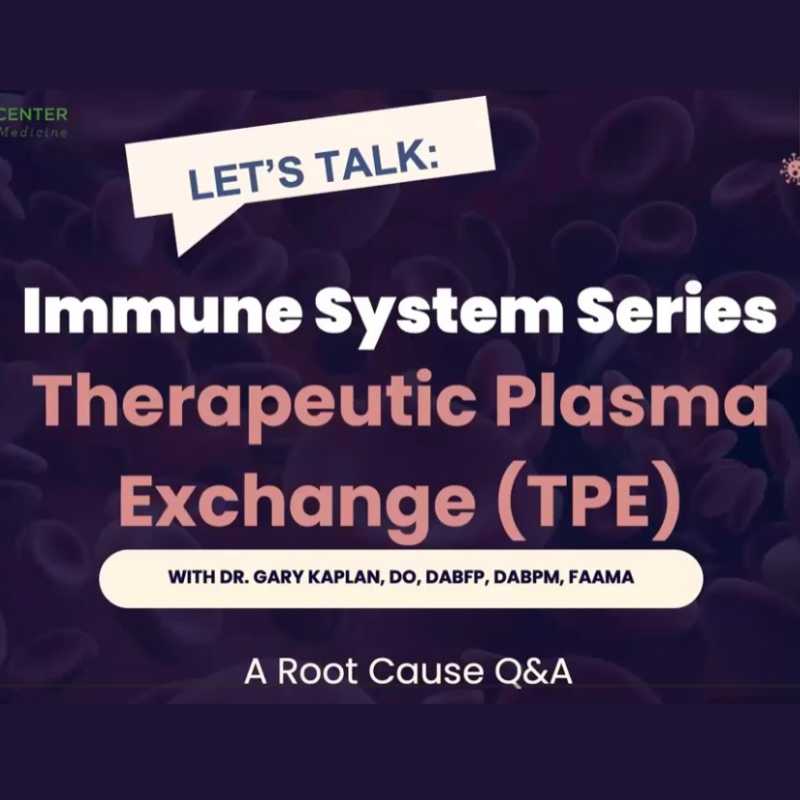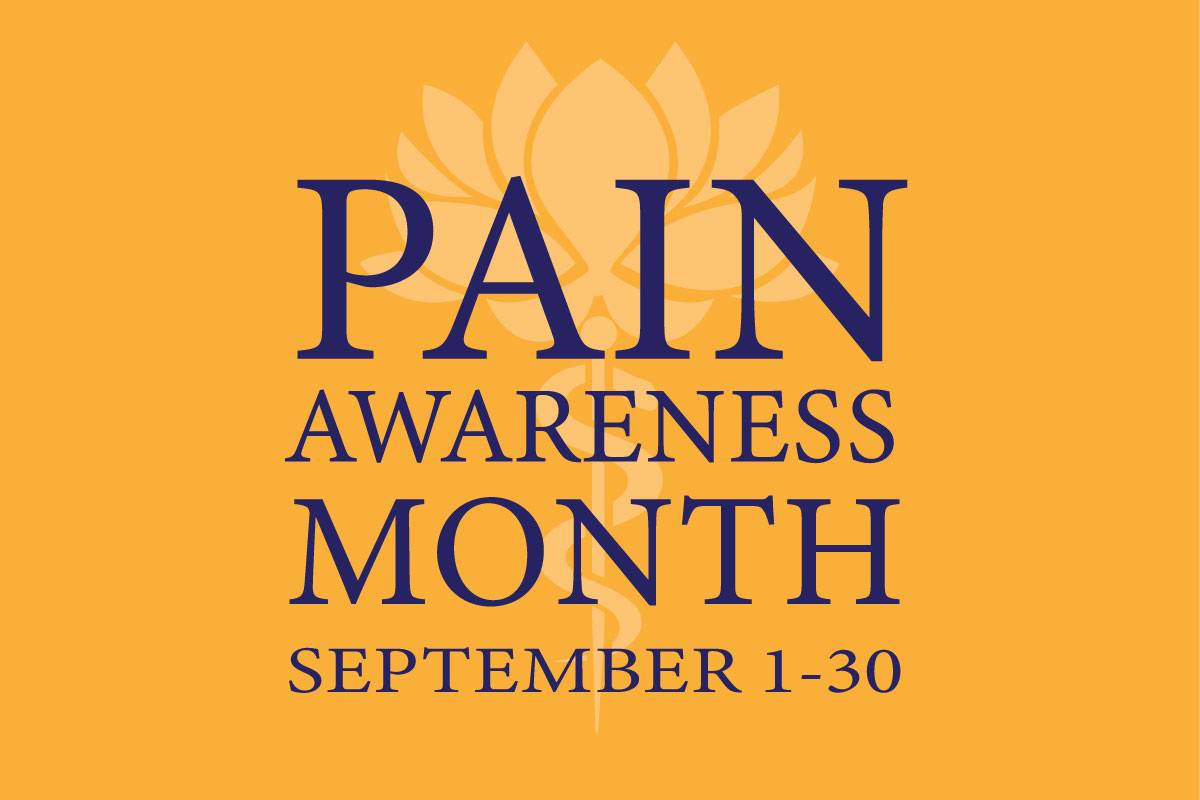
5 Ways We Can Keep Your Immune System Strong
December 10, 2025/by Kaplan Center
Want to Take Your Workout to the Next Level Next Year? These Tips Can Help
December 8, 2025/by Kaplan Center
Dr. Kaplan’s Dos and Don’ts of the Holiday Season
December 3, 2025/by Kaplan Center
Let’s Talk Webinar – A Root Cause Q&A
December 2, 2025/by Kaplan Center
Navigating Holiday Meals with Gut Issues: Simple Tips for a Comfortable Season
December 1, 2025/by Chardonée Donald, MS, CBHS, CHN, CNS, LDN
Craniosacral Therapy for TMJ | Say Goodbye to the Daily Grind
November 19, 2025/by Patricia Alomar, M.S., P.T.
From Compassionate Care to Personal Healing: A Letter to My Patients
November 18, 2025/by Kaplan Center
8 Steps to a Healthier Gut—and a Longer, Healthier Life
November 18, 2025/by Kaplan Center
Mid-Life Irritability & Fatigue Improved by Hormonal Balancing
November 13, 2025/by Lisa Lilienfield, MD
From Challenges to Change: Dr. Kaplan on Healthcare’s Biggest Challenges
October 29, 2025/by Kaplan Center
Overlooked Dangers of Mold Exposure and How to Stay Safe – Dr. Kaplan Talks to WUSA9
October 27, 2025/by Kaplan Center
Let’s ‘Fall’ Into Wellness: A Nutritionist-Approved Immune-Boosting Recipe for Cold and Flu Season
October 13, 2025/by Chardonée Donald, MS, CBHS, CHN, CNS, LDN
PANS/PANDAS – When Sudden Symptoms Signal Something More
October 9, 2025/by Kaplan Center
Beating Burnout, A Nutritionist’s Perspective
October 1, 2025/by Chardonée Donald, MS, CBHS, CHN, CNS, LDN
3 Things That Can Happen After Stopping GLP-1s
September 11, 2025/by Chardonée Donald, MS, CBHS, CHN, CNS, LDN
What Families Need to Know About COVID and Flu Season
September 3, 2025/by Kaplan Center
September is Pain Awareness Month
September 1, 2025/by Kaplan Center
Dr. Kaplan Spoke to Northern Virginia Magazine About COVID, Flu, and Immunity — Here’s What You Should Know
August 14, 2025/by Kaplan Center
“Why Do I Feel Like Crap?”: The Overlap Between Long COVID and Perimenopause
July 30, 2025/by Kaplan Center
Why People Are Turning to EMDR (and Why You Might Want to Too)
July 23, 2025/by Kaplan CenterAre you looking to improve your overall wellness?
Personalized care you can trust.
Our integrative, non-surgical treatment approach is highly successful in maintaining wellness and also treating chronic pain and illness. For more than 30 years, we have delivered superior, cutting-edge health care in the Washington, DC area.
QuickLinks
Contact Information
Tel: 703-532-4892
Fax: 703-237-3105
6829 Elm Street, Suite 300
McLean, Virginia 22101
Map It
Hours of Operation
Mon – Thu : 8 am – 5 pm, ET
Fri : 8 am – 12 pm, ET
What’s Missing From the IOM Report About Chronic Fatigue Syndrome (SEID)
/in News/by Gary Kaplan, DOOne doctor’s take on the Institute of Medicine’s new consensus report.
By Gary Kaplan, D.O.
The Institute of Medicine released their consensus report on myalgic encephalomyelitis/chronic fatigue syndrome, “Beyond Myalgic Encephalomyelitis/Chronic Fatigue Syndrome: Redefining an Illness,” on Feb. 10. This report was prepared by the Committee on the Diagnostic Criteria for Myalgic Encephalomyelitis/Chronic Fatigue Syndrome in response to a request by multiple agencies, including the Department of Health and Human Services, to examine the evidence base for ME/CFS. This committee was to set new diagnostic criteria that would facilitate timely diagnosis and care, as well as enhance the understanding of this disease among health care providers and the public.
The IOM panel proposed several positive changes, but I believe they fell short on two key issues. Here is a general overview of IOM’s findings, along with my commentary:
1. IOM declares that this disease does exist and is a medical, not psychiatric, condition.
For years, people suffering with ME/CFS have been battling a stigma associated with this condition. Some physicians have even doubted it to even be a legitimate illness. The acknowledgement from the IOM that this is a medical, not psychiatric, condition, as well as a complex, multi-system disease, was an important and necessary acknowledgement that will enable us to move beyond its stigma and provide the necessary support for patients suffering from ME
2. ME/CFS is out, SEID is in – maybe.
The IOM proposed the name Systemic Exertion Intolerance Disease to replace CFS. While I completely agree that a name change is necessary, as many consider CFS to be both stigmatizing and/or trivializing, SEID is not appropriately descriptive. It does not speak to the underlying complex pathophysiology of the disease but remains descriptive only of what is now regarded as the hallmark symptom – post-exertion malaise. The World Health Organization regards CFS as a neurologic disease, and the International Consensus Criteria regards it as an immunological mediated neuro-inflammatory disease with multi-system manifestations. The term Myalgic Encephalomyelitis speaks to the pathophysiology and is accepted worldwide. ME does not carry a negative connotation, and I believe it should have been accepted by the IOM.
3. IOM’s Diagnostic Criteria for SEID.
IOM states that diagnosis requires the following three symptoms:
At least one of the two following manifestations is also required: cognitive impairment or orthostatic intolerance.
IOM successfully defined the criteria for diagnosis, but I disagree with the mandatory time of six months to make a diagnosis. This is far too long. To insist that a person suffering with this condition wait six months for a diagnosis, especially if they have no other infectious or disease process, is wrong. The IOM acknowledges that nearly a quarter of the approximately 1 million people suffering with this disease are housebound or bedridden. To delay their opportunity to seek specialty help imposes unnecessary suffering. It also denies researchers the opportunity to study this disease in its earliest stages. We should follow the ICC’s example and not have a limit on the length of time someone needs to be suffering with these symptoms before getting a diagnosis.
4. Creation of a new ICD-10 code.
This is another positive step that will help doctors and researchers identify and track the percentage and demographic of the population affected by this disease, treatment success and failure rates, and other details associated with SEID.
So where do we go from here?
What we need now is the commitment of research dollars commensurate with the extent and severity of this disease to enable us to further its study and treatment. To give one a perspective on the current lack of research funding, multiple sclerosis, a devastating disease that affects less than half the estimated number of people suffering from ME/CFS/SEID, will receive approximately $100 million in NIH research dollars this year, while ME/CFS/SEID will receive a mere $5 million.
With the release of reports from NIH P2P and IOM acknowledging the extent and severity of this disease, we need to see a drastic increase in research funds that will not only assist in the creation of several centers of excellence to study and treat this disease, but also further educate the next generation of physicians and researchers. I believe a commitment from HHS/NIH of $150 million in research grants a year is essential to address and find a cure for this devastating disease.
In January I had the opportunity to share my view on the challenges of diagnosing and treating ME/CFS/SEID. I also discussed the recent findings of the NIH Pathways to Prevention conference “Advancing the Research on ME/CFS.”
As first seen on U.S. News & World Report.
Feeling Groggy? You May Be Sleeping Too Much!
/in Lifestyle/by Kaplan CenterGetting Too Little or Too Much Sleep Is Unhealthy
by Julia Westbrook
The most common red flag is often the one we’re likely to ignore.
Sleep is a fickle creature—like Goldilocks. Too little, and you’re pounding back coffees in the morning. Too much, and your head is stuck in a groggy fog all day. And in the search for sleep that’s “just right,” researchers have found health issues on both sides of the happy medium. Sleep deprivation can lead to depression and cancer, and too much sleep (more than eight hours) quadruples your risk for stroke, according to new research published in the journal, Neurology.
While the researchers point out that it’s not clear whether too much sleep is a cause, a consequence, or simply an early red flag of ill health, it’s clear that optimizing your sleep patterns should be a priority.
“Our lives—not to mention our sanity—depend on our ability to fully experience each stage of sleep,” says Gary Kaplan, DO, author of Total Recovery. “Ironically, the sleeping pills many people rely on do not support the quality of their sleep in the night and may be heightening their experience of pain the next day.”
The first thing to do is practice good sleep hygiene, such as turning off all electronics an hour before bed and having a consistent bedtime.
Next, work with your doctor to address any possible underlying health issues. “Taking a sleeping pill is like yanking the batteries out of a screeching fire alarm,” Dr. Kaplan. “If that’s all we do, in some cases, we’re shutting down the irritating warning while the house burns down.” Sleep disorders like sleep apnea can cause hypertension, weight gain, type 2 diabetes, and stroke.
If you suspect you have a sleep disorder, such as sleep apnea, he recommends taking the Epworth Sleepiness Scale Quiz or finding a location for a sleep lab overnight evaluation at the American Academy of Sleep Medicine. You can get a general idea of your sleep patterns with a home sleep test device that’s reliable, such as the WatchPAT, says Dr. Kaplan.
Published date: Feb 25, 2015
www.RodaleNews.com
Listening To Your Body – Red Flags You Should Never Ignore
/in Wellness/by Kaplan CenterBy Julia Westbrook
Learn how ignoring or downplaying your symptoms can hurt your health.
In our over-stimulating world, we’ve become very good at tuning things out, like background conversations on the train, sidebar advertisements online, and TV commercials. Unfortunately, this seems to have carried over into our heath lives and a concerning number of people are ignoring messages from their body, even potential cancer symptoms, according to research published in the journal PLOS One.
Surveying 1,700 people, they found that 53 percent had experienced at least one symptom that could be a red flag for cancer during the previous three months. The scary part: Only 2 percent didn’t dismiss cancer as a possibility.
“It’s worrying that even the more obvious warning symptoms, such as unexplained lumps or changes to the appearance of a mole, were rarely attributed to cancer [in this study],” says Dr. Katriina Whitaker, lead study author and senior research fellow at University College London.
Dr. Whitaker also points out that, even if cancer isn’t at the root, responding to this kind of serious symptom could catch other serious diseases early. “That’s why it’s important that these symptoms are checked out, especially if they don’t go away. But people could delay seeing a doctor if they don’t acknowledge cancer as a possible cause,” she says.
In addition to unexplained lumps or moles, some of the cancer red-flags included in the questionnaire included unexplained cough, bleeding, unexplained weight loss, unexplained pain, and persistent changes in bowel or bladder habits. Of the people who experienced concerning symptoms, just over half contacted their doctor, even if they didn’t attribute the symptom to cancer.
Catching cancer, or any disease really, early is a huge advantage for recovery, but that means that you need to dial into what your body is telling you and really listen. Gary Kaplan, DO, author of Total Recovery, says learning to listen to our bodies can save lives, but we’re really bad at doing this.
“It still amazes me how many aches and pains patients take for granted. At the most basic level, many people are stiff in the morning when they get out of bed,” says Dr. Kaplan. “They’re irritable and foggy-headed until they have a second cup of coffee. Since their friends are having the same experience, they joke about ‘getting older’ and assume that what they’re feeling is just nature taking its course, that there’s nothing they can do about it. But that’s not true.”
He asks us to ask ourselves the question “‘What are you putting up with?’ Whatever it is, the research is showing that the time to address it is now, not later.”
One of the big things we can listen for are signs of inflammation. “Only recently have we come to realize that so many of our most chronic diseases are primarily inflammatory conditions: inflammatory bowel disease (5 million),3 cancer (10 million), diabetes (14 million), 4 autoimmune disease (24 million), asthma (30 million), allergies (50 million), rheumatoid arthritis (50 million), 5 and cardiovascular disease (60 million), among many others,” he explains.
Dr. Kaplan recommends watching out for these three sneaky symptoms that may be trying to tell you “Something is wrong!”
Nutritional and Gastrointestinal Issues
“Gas, bloating, and poor digestion are also so common in our culture that it’s easy to assume they’re normal and nothing to worry about,” says Dr. Kaplan, but he points out that this is not the case: An upset tummy is not status quo. “It may be a symptom of a sustained inflammatory reaction in your body due to leaky gut, celiac disease, gluten intolerance, or other gastrointestinal disorders.”
Infections with pain, fever, malaise, or mood alterations
“The body is an ecosystem, so inflammation in the periphery can always potentially affect the central nervous system as well,” he says. “A lingering infection in the body can perpetuate inflammation.”
Unfortunately, he also points out that our best cure for infections, antibiotics, can upset the microflora in your gut, leading to leaky gut [link]. “It’s not that antibiotics are bad,” he clarifies, “But we know that antibiotics can have damaging side effects, so it makes sense to be aware of the consequences of using them and take precautions to offset it.”
Injuries
“The injuries that contribute to [relentless inflammation] seem to be the ones that have never fully healed,” he says. Unfortunately, the “bad back” or “trick knee” that people force themselves to just live with keeping the inflammation going. ” If you still feel lingering effects from physical trauma, I encourage you to find a way to treat it. Total recovery is your best protection against the effects of cumulative traumas.”
As first seen on www.RodaleNews.com